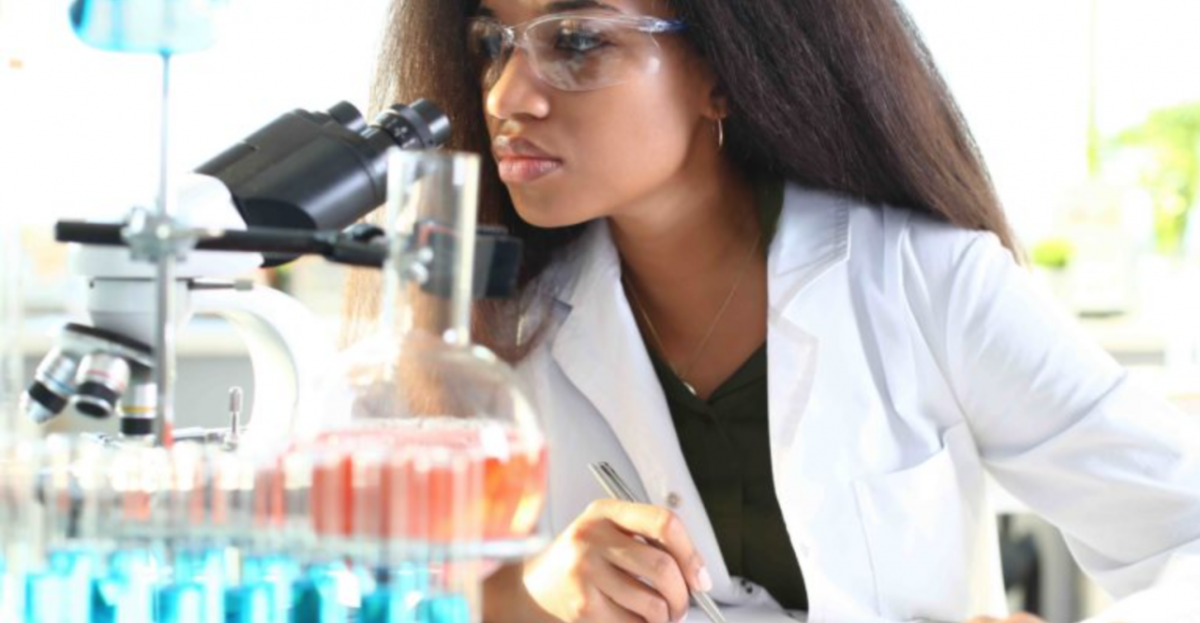Transforming Education Today With Private-Public Partnerships Focused on Tomorrow
Marla Wilson, Executive Director, STEM Careers Coalition

According to Education Secretary Miguel Cardona, the United States is at a once-in-a-century opportunity to transform education. “This is a moment in education to boldly address the patterns of inequity that have been pervasive in our schools. This is our moment to ensure that we reopen, reinvest, and reimagine our schools differently and better than ever before,” said Education Secretary Miguel Cardona.
Doing so expressly requires innovation and collaboration to meet the needs of students and educators today, where they are now, and far into the future. A key part of this plan is partnerships for education – the private sector must continue to step up for communities. Pharmaceutical and healthcare companies have been on the frontlines of COVID-19 since the pandemic outbreak. These organizations have tirelessly worked to bring communities back to a sense of normalcy and going back to school will require that same level of commitment.
Last month, Discovery Education convened a panel at the 2021 Social Innovation Summit to discuss with healthcare industry leaders how they use technology and strategic partnerships to support education. The conversation included:
- Marla Wilson, Executive Director, STEM Careers Coalition (moderator)
- Holly Copeland, Senior Director of CSR at Horizon Therapeutics
- Maria Lafleur, National Program Lead Thriving Schools, Kaiser Permanente
- Wendy Richard, Director of US CSR & Community Relations, Sanofi
The session – entitled Back to School, Back to “Normal” – illuminated how executives and social impact leaders are working with school systems to accelerate learning. Here is what they shared:
Put equity at the center of everything.
“An equity lens is the lens. As a collective, we all understand the urgency of now in solving problems, many of which have been deepening and disproportionately affecting underserved populations,” said Wendy Richard of Sanofi.
Since the beginning of the pandemic, over 90% of K-12 students transitioned to remote learning, and post-pandemic, some may continue to learn in a hybrid model. Among those disproportionately impacted by the move to remote learning are the students of color and students from low-income families. There are currently 11.9 million children living in poverty in the United States, 75% of whom are people of color. Food insecurity, a lack of internet connectivity, and a deficit of learning devices are just of few of the challenges low-income students may face.
While these complex dynamics are not new, they were highlighted by the pandemic, as COVID-19 shined a bright light on the inequities prevalent in society, including in education.
“From our perspective, the new ‘normal’ means dealing with the structural inequities that result from centuries of injustice,” said Holly Copeland of Horizon Therapeutics. “There is this element of providing support for educational experiences that provide exposure — career pathways that start in middle and elementary school. Beyond that, it is how we can harness the power of our organization to deal with the root causes of injustice.”
Connecting the dots between classrooms and careers, the STEM Careers Coalition showcases a robust array of career profiles introducing students to leaders in dynamic industries and job roles and shows how students can use their STEM skills to make a difference in the world. Each career profile video features a STEM professional and is accompanied by fun activities that help students gain a deeper understanding of the world of work, helping them see themselves as the next generation of leaders.
For example, one of the newest Solutions Seeker profiles Jerry Crespo, a Certified Nurse Educator from Horizon Therapeutics, sharing how STEM and health are interconnected and have continued to influence each other in the pandemic.
Creating pathways to success for all students starts by connecting the real-world to the classroom. Working alongside Discovery Education, corporations and organizations are helping accelerate learning by offering supports and resources that help mitigate learning gaps, drive deeper engagement, and creates lasting impact in any learning environment.
By making the improvement of educational equity a focus of these efforts, partnerships and corporations will continue to be relevant going forward, according to Maria Lafleur of Kaiser Permanente.
Teaching the whole child.
Education leaders agree that we cannot separate students’ emotional health and well-being from their ability to be successful in school. Each day, educators share that now, more than ever, so many of their students are struggling with self-esteem and relationship issues, anxiety, and general stress. COVID-19 has left students missing friends and school, deprived them of the normalcy and connections of sports and activities, and unfortunately in some cases, forced students to deal with additional hardships including job losses in their families, sickness, and death.
Students dealing with these issues may have difficulty paying attention in classes or doing homework. “The answer is always resilience,” said Maria. “A trauma-informed approach is important to everyone and creates a quality school environment.” It’s important we develop strategies that integrate trauma-informed care and social-emotional learning to help students reconnect and enjoy academic success now and in the future.
Regardless of the location, safe, predictable, empowering, and collaborative spaces are beneficial for all students and educators. With the resources from Ready, Set, RISE! – a unique virtual initiative from Kaiser Permanente, Alliance for a Healthier Generation, and Discovery Education – educators anywhere can help ensure that the learning environments they create are fit for all students.
Communities can go even further by focusing on social-emotional learning with no-cost resources from the Social-Emotional Learning Coalition. More than two decades of research shows that SEL can help young people develop social responsibility, practice leadership, and gain personal and social skills. COVID-19 and its impact on education underscores educators’ need for curated and vetted content supporting the whole child in any learning setting.
All of these educational partnerships and each of these leaders exemplify how the private sector can effectively play active role in delivering education anywhere to students everywhere.

